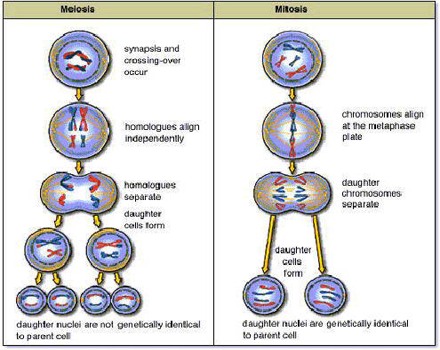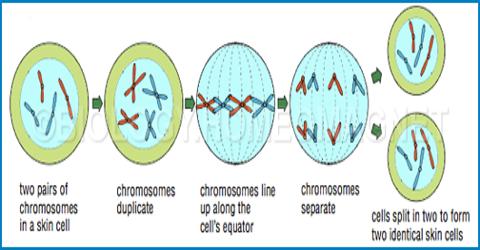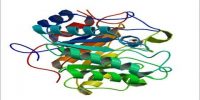Characteristics of mitosis:
Mitosis is a process where a single cell divides into two identical daughter cells (cell division). Since mitosis occurs in somatic cells, it is also known as somatic cell division.
- Each chromosome divides vertically into two daughter chromosomes (chromatids). Each of the two newly formed daughter chromosomes reaches opposite poles producing two daughter nuclei. So chromosomal number remains the same in each of the two daughter nuclei.
- The daughter cells have the same properties as their mother cells.
- The chromosomal number for both daughter cells and mother cell remain equal.
- The daughter cell grows to become more or less similar in volume.
- It occurs only in somatic cells.
- Chromosomal no. is not reduced in this type of division.
- It does not allow genetic recombination.

- After the fusion of male and female gametes zygote is formed. Mitosis is responsible for the development of a zygote into an adult organisms.
- Mitosis is essential for the normal growth and development of living organisms. It gives a definite shape to a specific organism.
- In plants, mitosis leads to the formation of new parts, viz., roots, leaves, stems, and branches. It also helps in repairing damaged parts.
- During mitosis, one cell divides once to form two identical cells.
- The major purpose of mitosis is for growth and to replace worn-out cells.
- If not corrected in time, mistakes made during mitosis can result in changes in the DNA that can potentially lead to genetic disorders.













